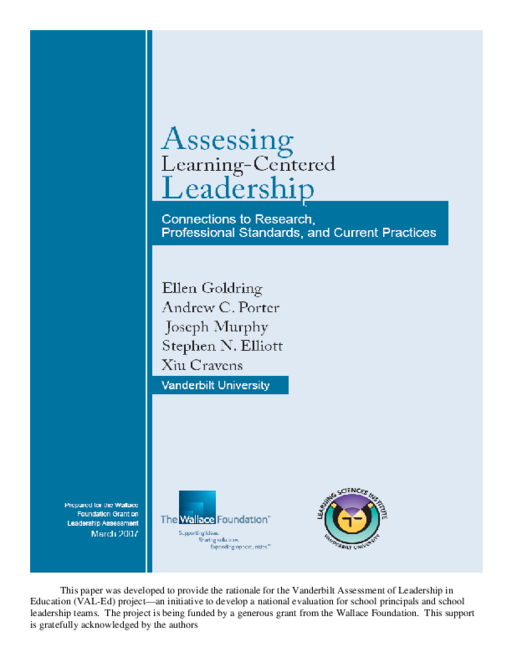Breadcrumb
- Wallace
- Reports
- Assessing Learning-Centered Lead...
Assessing Learning-Centered Leadership
Connections to Research, Professional Standards, and Current Practices

Overview
More
Less
Summary
With support from The Wallace Foundation, Vanderbilt University developed a school leadership assessment unique in focusing exclusively on instructional leadership and examining both principals and leadership teams. This paper describes the structure of the assessment, presents the research behind it, and explains how it aligns with the Interstate School Leaders Licensure Consortium (ISLLC) Standards.
Rather than focusing on management skills, knowledge, or values, the assessment homes in on leadership behaviors that research has shown lead to higher student achievement. They fall under six general categories: planning, implementing, supporting, advocating, communicating, and monitoring. The paper describes how each type of behavior advances six core components of effective schools. These include a rigorous curriculum for all students in core academic subjects, high-quality instruction that helps students achieve ambitious academic and social learning goals, and family and community support to reach those goals.

